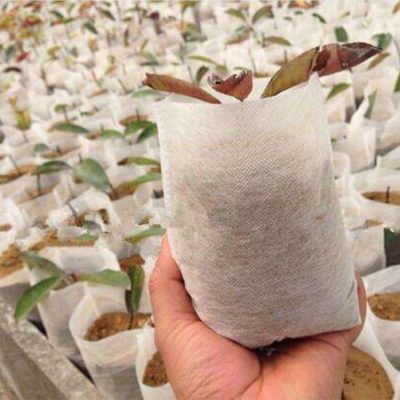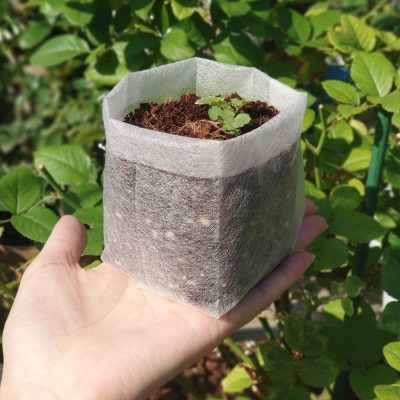Non-woven grow bags are generally considered more eco-friendly compared to traditional plastic pots or containers. Here’s an understanding of their environmental impact:
- Biodegradability: Many non-woven grow bags are made from biodegradable materials, such as recycled fabric or natural fibers like jute or coconut coir. These materials break down naturally over time, reducing the environmental burden compared to non-biodegradable plastic containers. Biodegradable grow bags can be composted or returned to the soil at the end of their life cycle, contributing to organic matter and nutrient recycling.
- Reduced Plastic Waste: By using non-woven grow bags instead of plastic pots, you help reduce plastic waste in the environment. Plastic pots take hundreds of years to decompose, and improper disposal can lead to pollution and harm to ecosystems. Non-woven grow bags offer an alternative that is more sustainable and less harmful to the environment.
- Reusability: Non-woven grow bags are often reusable and can be used for multiple growing seasons. Their durability allows gardeners to avoid the need for constant replacement, further reducing waste. Reusing grow bags maximizes their lifespan and minimizes the demand for new containers.
- Resource Conservation: Non-woven grow bags typically require fewer resources to manufacture compared to traditional plastic pots. Plastic production involves the extraction of fossil fuels and energy-intensive processes, contributing to carbon emissions and resource depletion. By opting for non-woven grow bags made from recycled materials or natural fibers, you can contribute to resource conservation and reduce the ecological footprint associated with container production.
- Local Production: Some non-woven grow bags are produced locally, reducing the carbon footprint associated with long-distance transportation. Supporting local businesses that manufacture non-woven grow bags can contribute to the local economy and minimize the environmental impact of transportation emissions.
- Considerations for Synthetic Fabrics: While many non-woven grow bags are made from biodegradable materials, some may use synthetic fabrics such as polypropylene or polyester. These synthetic materials are not biodegradable and may contribute to microplastic pollution if they break down over time. However, the overall environmental impact of synthetic non-woven grow bags is still lower compared to traditional plastic pots due to their longer lifespan and reusability.
It’s important to note that the environmental impact of non-woven grow bags can vary depending on the specific materials used, manufacturing processes, and disposal practices. When choosing non-woven grow bags, opt for products made from sustainable and biodegradable materials whenever possible. Proper disposal, such as composting or recycling, at the end of their life cycle is also crucial to minimize environmental impact.








